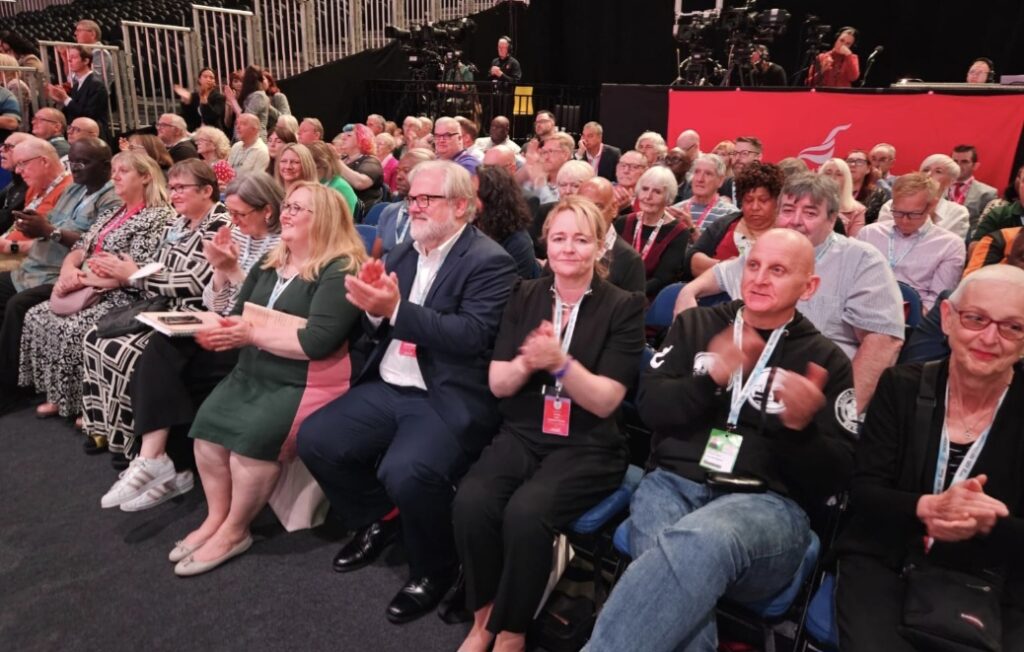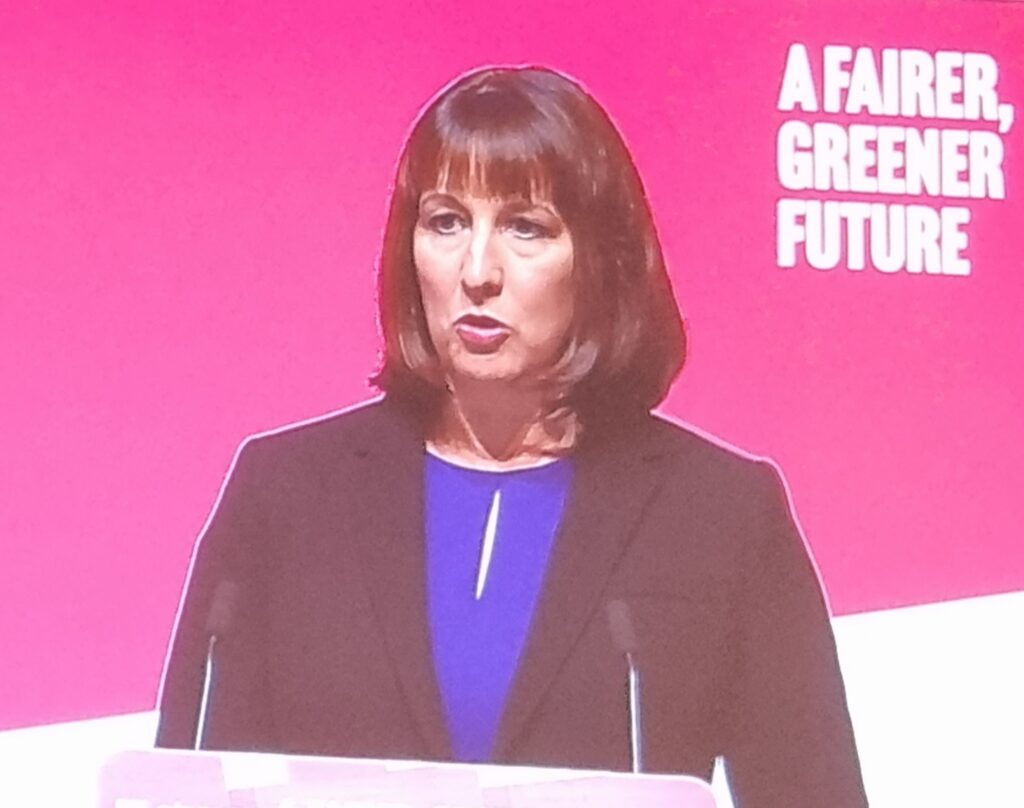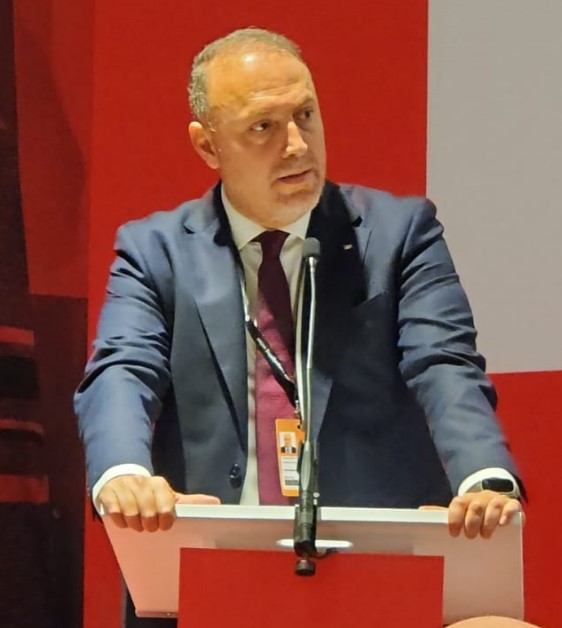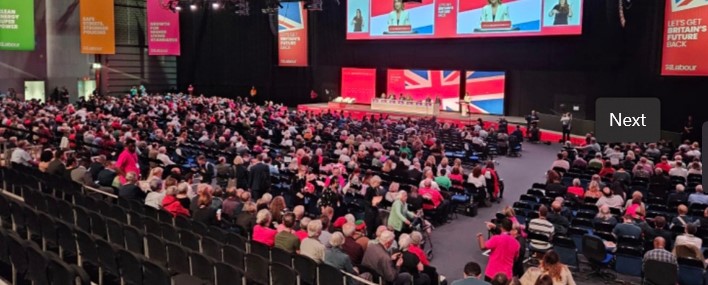By Ray Goodspeed, Leyton and Wanstead CLP delegate
On Monday, the second day, among the key issues discussed in the morning were foreign policy and defence. There were two resolutions on Defence and Ukraine, and thus we were treated to the strange case of the twin composites.
It was truly remarkable how much two composites coincided. One would almost think that they were written by the same person – although moved by organisations three hundred miles apart – but separated only to make sure there were two ‘separate’ sessions in the ballot for subjects to be debated. (See report yesterday on manoeuvring SHA resolution off the agenda).
The strange case of the twin composites.
Composite 1 on Defence had the following as the main body of the resolution:
Labour’s support for NATO, our nuclear deterrent and our armed forces will remain absolute. Labour will ensure our defence spending meets our NATO commitments. Labour will invest in the UK’s defence manufacturing base. Labour guarantees continued long-term UK support for Ukraine and will work with allies to provide the assistance it needs to defend itself.
A Labour government will seek new alliances and deepen others to strengthen our resilience to new threats including a new EU-UK security pact and developing the new A UKUS partnership. Under a Labour government, Britain would take an active role in international efforts to secure strategic arms limitation and multilateral disarmament and reduce nuclear risk.
Apart from minor differences, like the use of bullet points, exactly the same words made up the bulk of the Composite resolution 2, on Ukraine. In a conference dominated by the right wing, it seems that they don’t even need to hide their copying and pasting, because they know their resolutions will be passed anyway, as these were.
Sharon Graham of UNITE made an important intervention
On a more positive note, perhaps the most important speaker from the floor in the morning was Sharon Graham, General Secretary of Unite, speaking in a general session on Infrastructure and Industry, with social care tagged on. It was an important intervention by Sharon for two reasons. Firstly, because she had stayed away from conference last year, and it is a very progressive development if she is now prepared to assert her union’s influence in trying to move Labour policy towards more radical policies. And secondly, it was important for what she said, warning the Labour leadership In no uncertain terms, that she expected policies in the interests of her members and workers in general.

Sharon Graham was moving a resolution moved by Unite, and seconded by ASLEF, that was probably the most radical resolution of the day, details here. It is one of those that the Labour leadership will ignore, but it is an indication of the survival of left ideas and policies within the trades unions. The composite, calling, among other things, for the nationalisation of the energy industry and for a publicly-owned railway network, was passed on a show of hands, although it looked like right-wing delegates voted against it.
In the same general section, the GMB union moved a long and rambling composite resolution, mostly to do with greening the steel industry, but including references to “new industrial relations structures around the everyday economy covering mostly low-paid women” and the right of unions to access workplaces for recruitment.
Rachel Reeves and the need for “tough decisions”
UNISON then moved a resolution on the social care workforce. It was good in so far as it supported improvements in the terms and conditions of workers in that sector, among the most underpaid and overworked workforces. But unfortunately, it fell short in not calling for the municipalisation of social care – as social care used to be in the past.

Instead, it called for providers to have to “demonstrate financial sustainability”, which is not much different to the regulations on social care providers today. These two resolutions were also passed on a show of hands, with larger majorities than the Unite composite, there being little in them to disturb the right wing.
Part of the morning was given over to the set speech of Rachel Reeves, Shadow Chancellor, with the many natural gaps in the auditorium filled by visitors brought in to give her a full conference. She had obviously been briefed to repeat the phrase ‘rebuilding Britain’ over and over. She – like all Shadow ministers – was at pains to point to the needs of “working class” people and there were many radical-sounding phrases, like commitments to boost living standards.
Conference addressed by former head of the Bank of England
She also repeated the message from Angela Rayner yesterday that workers will get improved rights. Behind the scenes, however, the key Starmer adviser is arguing (BBC article) that Keir Starmer “should not to give too much power to trade unions if he wins power”. It is an open question therefore, whether or not these commitments will be met.
In any case, behind all the ‘lefty’ rhetoric, Reeves didn’t forget to mention the “tough decisions” that will have to be made and the “iron-clad” fiscal prudence she will have to demonstrate – which, although she didn’t say as much, pretty well write off all the commitments on living standards.
It is not for nothing that the Labour leadership is getting significant donations from business, as it was featured in today’s Guardian. It is because big business is banking on Labour introducing policies in their interests when they get into office. Nothing epitomised that better than a remarkable video shown to conference, featuring Mark Carney, the former Governor of the Bank of England, endorsing Labour and a Shadow Chancellor who used to work for the BoE.

One of the features of what is a far more stage managed conference than in the recent past, was the apparent psychic ability of the chair to pick delegates at random, yet somehow come up with a long list of Prospective Parliamentary candidates and councillors. Perish the thought that (right wing) speakers are arranged in advance.
The CAC report 2, given to delegates on the second day, showed some interesting features in the card votes from the previous day. The card vote on the National Policy Forum Report was passed, but the breakdown between the CLPs and affiliates – mostly the trade unions – is worth a comment. It showed that the right at the moment have a majority among CLPs of around 9 to 1, but it is much less in the trade unions. Affiliates voted over 31% against the NPF report.
Palestine embassador spoke to a packed fringe meeting
That situation was also noticeable in the votes on constitutional amendments. The three card votes were more or less the same, with around 20% of CLPs voting against the constitutional amendments (35% in one vote) but more in the trade unions. With the latter, the vote against was never less than 43.79%. Apart from Unite and the FBU, who regularly vote to the left, other unions must have opposed these unnecessary constitutional changes.

In one of the most packed early evening fringe events, with many standing at the back and around the sides, the Palestinian ambassador, Husam Zomlot, spoke to a meeting organised by Labour & Palestine. He referred to the grim prospects facing Palestinians in Gaza, the big majority of whom are not Hamas militants or members, but who suffer from the massive Israeli bombardments.
The meeting was very careful to condemn all civilians deaths, Israeli and Palestinian, but the blame for the grim scenario that is unfolding is put squarely on the shoulders of the state that has occupied Palestine for decades – Israel.



